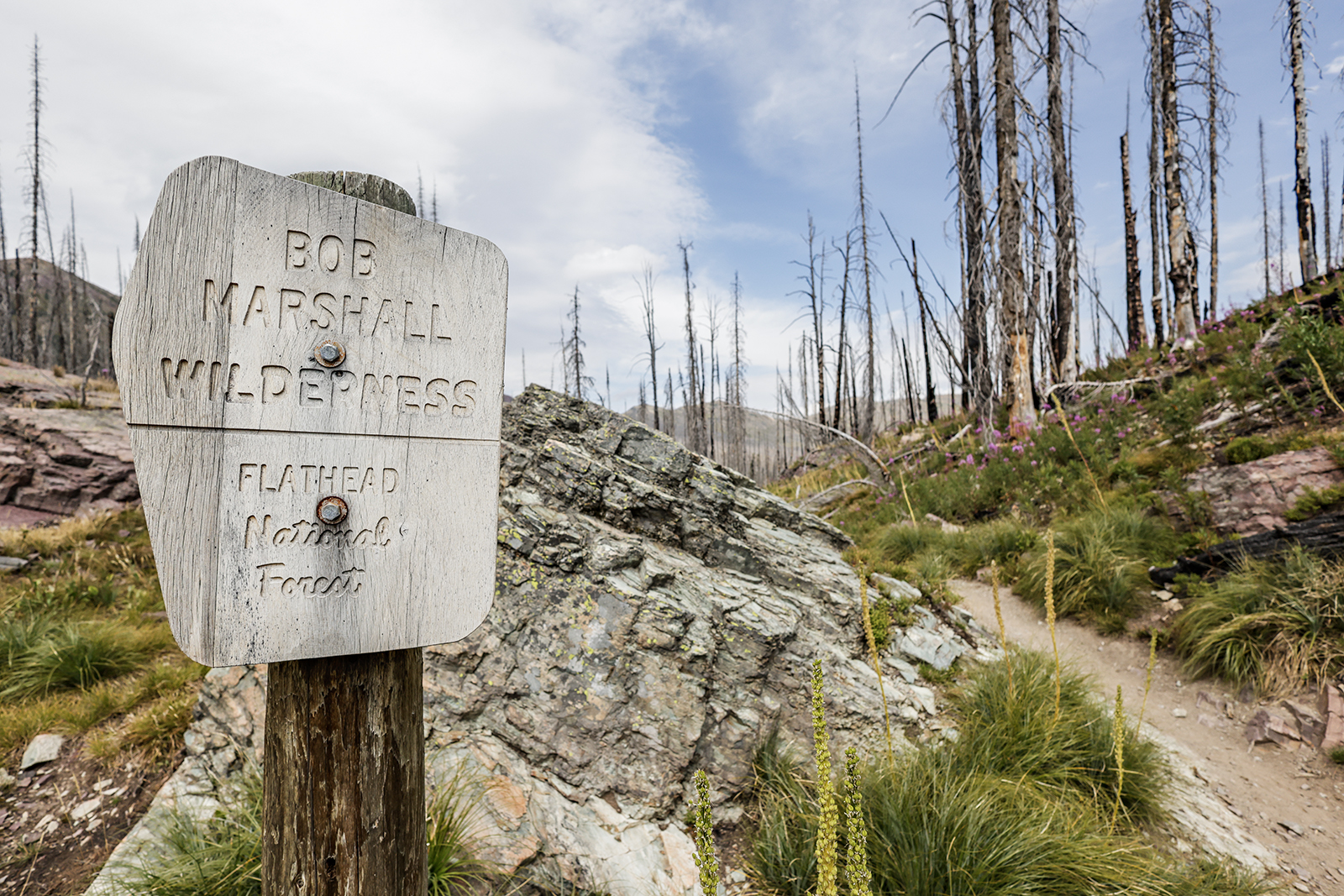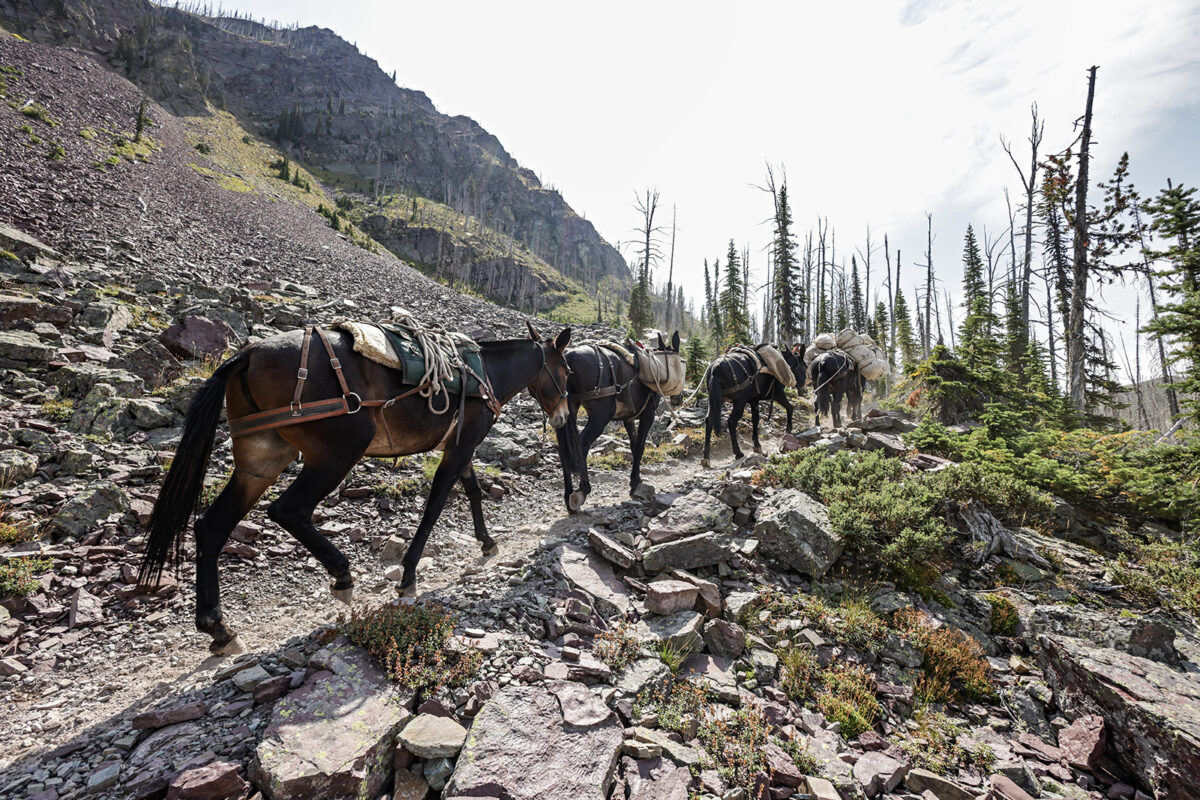Former Bob Marshall Wilderness Outfitter Pleads Not Guilty to Illegal Brown Bear Killing in Alaska Wildlife Refuge
Richard McAtee, a local outfitter whose repeated infractions in Montana were at the center of tensions that led to a Spotted Bear district ranger’s ouster, no longer holds a valid special use permit on the Flathead National Forest
By Tristan Scott
A longtime local outfitter who incurred numerous citations for violating the terms of a special use permit authorizing him to guide trips in Montana’s Bob Marshall Wilderness Complex pleaded not guilty this week to illegally killing a brown bear on a national wildlife refuge in Alaska.
Richard McAtee, 46, was indicted in July by a grand jury in U.S. District Court in Alaska, where he faces one count of conspiracy and two counts of violating the Lacey Act, a federal law that prohibits trafficking illegally killed wildlife. According to the indictment, McAtee and a co-defendant, 51-year-old Arlon Franz, shot and killed the brown bear in May 2022 in the Alaska Peninsula National Wildlife Refuge before the hunting season had opened, then transported the remains in violation of state and federal laws.
On Sept. 16, McAtee entered not guilty pleas to all three felony counts outlined in the indictment, dialing in to the Anchorage, Alaska courtroom proceedings by telephone after waiving his rights to an in-person appearance before U.S. District Judge Matthew Scoble. McAtee was appointed a federal public defender and agreed to the conditions of his continued release, which prohibit him from hunting, fishing, trapping, or outfitting of any kind, as well as accompanying others in the field for the same activities. He may not possess a firearm or any other weapon and must provide a detailed list of the firearms he owns, as well as their locations.
The indictment further alleges McAtee illegally provided guiding services to a non-resident hunter in Alaska without a written contract or the supervision of a master guide. After killing the bear out of season, prosecutors say McAtee salvaged its hide in the field and transported it to a hunting lodge before again transporting it to Port Moller, Alaska, and then to Anchorage.
The federal charges McAtee faces in Alaska coincide with legal troubles that ensnared him in northwest Montana, where he’s no longer authorized to work as a commercial guide and has sold his outfitting business. Until last June, McAtee owned and operated the Montana Wilderness Lodge, which he purchased in 2017 on the Spotted Bear Ranger District in the Bob Marshall Wilderness Complex, offering private services under a special use authorization administered by the Flathead National Forest.
In his capacity as an outfitter, McAtee was the subject of numerous complaints and accrued a slew of citations and petty offenses, according to court documents and interviews with current and former Flathead National Forest officials. Even so, he was allowed to continue operating the Montana Wilderness Lodge under the special use authorization, despite the objections of rangers tasked with enforcing the rules of the wilderness.
“We were getting complaints about Rich McAtee on a weekly basis, and there was nothing I could do to offer the public any relief,” Scott Snelson, the former district ranger at Spotted Bear, said Wednesday.

A career U.S. Forest Service employee, Snelson said after his protests were rebuffed, he was transferred from his post at Spotted Bear to an administrative position at the Flathead National Forest’s Kalispell headquarters, a reassignment he says was delegated at the behest of former Forest Supervisor Kurt Steele. Snelson retired the following November under what he characterized as professional duress, nursing a grievance born after his supervisors undercut his authority to gain compliance from an outfitter run amok.
That authority is prescribed to district rangers by the Wilderness Act of 1964, which allows outfitting and other commercial activities only as a “special use” designed to convey the public trust. The terms of the special uses are outlined in the management documents of the three national forests whose jurisdictions encompass the Bob Marshall Wilderness Complex. Each outfitter has a forest contract meant to ensure that activities taking place on the public resource minimize impacts and help promote stewardship ethics on the unspoiled landscape.
In Snelson’s experience, outfitters and guides mostly adhere to those rules and principles.
“I do not believe that there is rampant abuse of these special use permits by outfitters and guides. But there is a transparency problem,” Snelson said. “And to the extent that my bosses at the regional office weighed in and prevented me from holding Rich McAtee accountable for his actions, there’s an accountability problem.”
In June 2023, one of those former bosses, Steele, accepted a new position at the U.S. Forest Service’s Northern Region headquarters in Missoula, ending his 3.5-year stint as the forest supervisor overseeing the Flathead. Although his departure coincided with Snelson’s, Flathead National Forest officials have declined to elaborate on whether the administrative shake-up was related.
During the same period in June 2023, forest administrators proposed suspending McAtee’s special use permit for suspension. According to Flathead National Forest Supervisor Anthony Botello, who replaced Steele, the proposed suspension was due to “violations of the terms and conditions of McAtee’s special use authorization.”
After a brief appeal period, officials suspended McAtee’s permit on June 20, 2023.
On June 13, 2024, nearly a year later, forest officials terminated McAtee’s permit, a punitive measure taken after McAtee sold the business; however, the agency issued a separate special use permit to the new owners of Montana Wilderness Lodge.
The violations McAtee has amassed since 2019 include operating commercially on National Forest System lands where he’s not authorized to do so; storing equipment, personal property or supplies where he’s not authorized to do so; violating the 16-day stay limit by leaving a flatbed trailer on National Forest System lands; and for possessing more than 35 head of stock. On July 25, 2022, two members of the public submitted official complaints that McAtee had assaulted them.
“Mr. McAtee no longer holds a valid special use authorization on the Flathead National Forest,” Botello wrote in an email describing the consequences of the violations.

Even so, earlier this year the Montana Wilderness Lodge was listed among the 62 outfitters and guides whose permits the agency was preparing to reauthorize for the next decade. In soliciting public feedback about the proposed reauthorization, the agency provided no information about the permittees or their performance records as private commercial stakeholders on public lands.
Keith Hammer, a longtime environmental watchdog who has spent decades challenging agency officials to follow their own standards, said the Flathead National Forest should be more transparent during its reauthorization process by sharing details about a permit holder’s track record; their past and pending citations for noncompliance; their performance evaluations; and, especially, whether their permit is under suspension or being considered for revocation or cancellation, as was the case with McAtee’s in February 2024 when the agency conducted its public scoping.
“Those are the kinds of details that the public needs to know,” Hammer said. “Otherwise, what are they supposed to comment on? We should have access to a report card or evaluation of these outfitters and guides or else we’re totally in the dark.”
Snelson said the circumstances surrounding McAtee have “stuck in my craw,” particularly as law enforcement agencies mete out the same punitive actions against the former outfitter that Snelson had been imploring them to take when he was district ranger at Spotted Bear.
“My staff and I did everything we could to be fair, and hold all outfitters and guides working on the district accountable to their contracts with the American people through the special use permit system,” Snelson said. “When it came time to gain compliance from a particular politically connected outfitter, who had committed repeated and increasingly notorious violations of law and terms of his permit, the former Forest Supervisor and his superiors and Regional support staff consistently knee-capped our efforts over a several year period.”

Botello, the forest supervisor who in November 2023 replaced Steele, wrote in response to the Beacon’s questions that “McAtee’s conduct and performance as a permit holder was evaluated annually as a part of the special use authorization process.”
“As violations of the terms and conditions of the permit are found and substantiated, permit action is taken, up to and including notices of non-compliance, suspension, notices of revocation, and termination,” according to Botello.
The Montana Outfitters and Guides Association (MOGA), which represents more than 500 of Montana’s professional licensed outfitters and guides operating across the state, said in a prepared statement earlier this year that “allegations of noncompliance should be taken seriously and any violation of permitting regulations addressed.”
“Licensed outfitters in the Bob Marshall Complex must adhere strictly to Montana Board of Outfitters regulations, ensuring visitor safety and environmental protection,” said Will Israel, executive director of MOGA. “These regulations are in place to ensure the safety of visitors, maintain the integrity of the wilderness experience and support responsible outdoor recreation opportunities.”